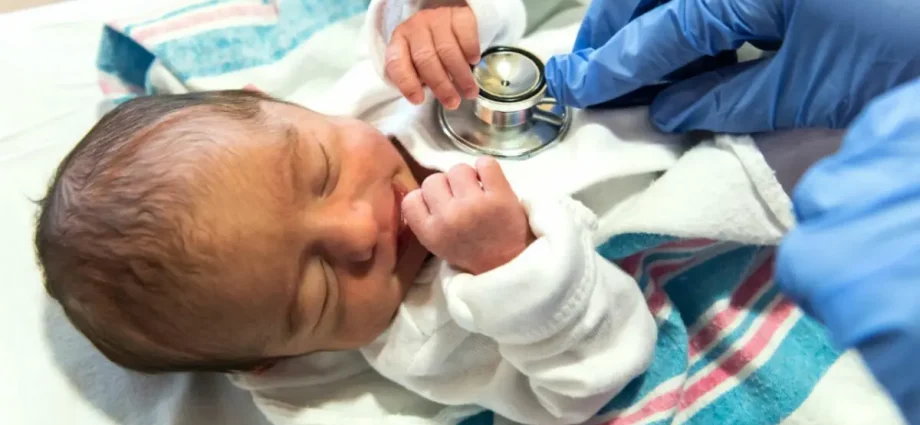Contents
Hospitalized child: how is it going?
Of course, your child may be hospitalized following an emergency room visit, especially in the event of respiratory ailments (asthma, bronchiolitis, etc.) or gastroenteritis. But sometimes hospitalization can be scheduled. In that case, it is essential to prepare your child for his hospital stay and to talk to him about it beforehand. Not too early either, the little ones do not have the notion of time. To reassure him, answer all his questions. Even if they recognize that it is not always easy, specialists recommend putting words into actions, regardless of the child’s age.
Parents’ place in the hospital
Whether it is for a few hours or several days, parents and children alike can be worried about being separated. In this environment, which he does not know, the little one quickly feels lost and needs the presence of his family more than ever. This is also recommended during treatment. “Parents can, at the same time as their child is being treated, put words on what is being done to him, or distract him with songs or short stories …”, explains Dr Faye, hospital practitioner in general pediatrics at Robert Debré hospital (Paris). On the other hand, doctors suggest that parents go out for “heavy” care. In this case, you don’t have to feel guilty about leaving your baby in the care of the healthcare team. This will also allow you to “breathe” a little.
Otherwise, if the charter of the hospitalized child clearly stipulates that “a hospitalized child has the right to have his parents or their substitute with him day and night, regardless of age or condition ”, 35% of French hospitals do not yet have a parent / child room. Despite the mobilization of associations to improve the reception of families at the hospital, the main criteria for allocating these rooms are the mother’s breastfeeding, the seriousness of the pathology and the distance from the residence. What’s more, the reception possibilities also depend on the size of the hospital. For example, university hospitals have a more varied offer than other establishments. On the other hand, neonatal and heavy care services have the lowest possibilities. In some hospitals, parents can stay with their child 24 hours a day, but in conditions close to the campsite! Still others refuse their presence.
According to the site hopital.fr, in almost a third of cases, sleeping with your child in a care unit is not free. The price varies between 4 and 45 euros. |
Nursing staff in the pediatric ward
Caregivers in the pediatric ward have generally received specific training. Doctors are pediatricians, nurses are nursery nurses, and nursing assistants are nursery auxiliaries. However, there are, in fact, many more nurses than nursery nurses. Only neonatal services have exclusively nursery nurses.
One of the goals of nursing staff is to be able to analyze children’s pain. To do this, he uses a behavior scale. “Crying and crying, or on the contrary, an apathetic attitude, that is to say a newborn baby who does not move and who seems paralyzed, are signs of pain,” says Dr. Faye. There are also different methods available to caregivers to avoid suffering during treatment. Liquid sucrose feedings are ideal for babies up to about 9 months of age. Their sweet, sweet flavor soothes and reassures them. Nurses can also apply numbing cream before certain treatments, such as blood tests or punctures. Finally, the staff use oxygen masks. The child breathes a mixture of oxygen and nitrous oxide which relaxes them and allows them to better endure the pain. This technique can be carried out from the age of 2 or 3 years. Moreover, if your child is old enough to understand, do not hesitate to explain to him, before the exams, that some treatments will be painful. Even if it’s never easy.
Sick child: how to take care of him in the hospital?
It is not always easy to find activities to occupy your hospitalized child. Worse still, if he’s bedridden. Even if you don’t like him watching it at home, television can be of great help in such a situation. Most hospitals offer it for rent. So that he does not feel lost, bring him his blanket, but also some of his favorite toys and books… avoiding sound games.
To know
In France, half of hospitals have a playroom. This allows the little patients to stretch their legs a bit and have fun with their comrades.
Signs of regression after hospitalization?
Once home, your child may still need special care. The support of the whole family is essential, especially if the pain persists for the first few days. From a psychological point of view, hospitalization can lead to more or less significant sequelae in children. Moreover, for some small patients, short hospital stays (two or three days) are the most difficult to live with. And for good reason, when they stay there for several weeks, they have time to ask questions, to create benchmarks. Know, moreover, that the “trauma of separation” can lead to a kind of regression. As Françoise Galland explains, it happens that after hospitalization, children start to wet the bed again, are afraid of unfamiliar faces, and remain clinging to their parents ”. Rest assured, toddlers very quickly recover their bearings and what was acquired before hospitalization naturally takes its place. In addition, to help your child get rid of his fears, you can suggest playing doctor with his soft toys, drawing what he is feeling or talking about his hospitalization.










